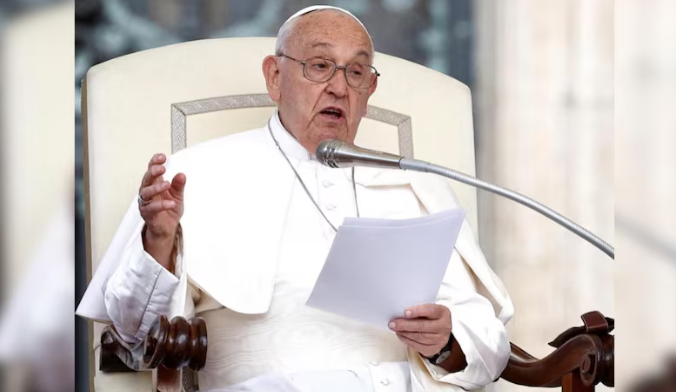Who was Pope Francis: Pope Francis, born Jorge Mario Bergoglio on December 17, 1936, in Buenos Aires, Argentina, is a significant figure in the modern Catholic Church. As the first pope from the Society of Jesus (Jesuits) and the first from the Americas and the Southern Hemisphere, he has brought a unique perspective to the papacy. Before his religious career, Bergoglio worked in various jobs, including as a bouncer and a janitor, before training to be a chemist. His journey into the Church began after recovering from a severe illness, which inspired him to join the Jesuits in 1958. He was ordained as a priest in 1969, later becoming the Archbishop of Buenos Aires and eventually being created a cardinal by Pope John Paul II in 2001.

Overview of Pope Francis
| Detail | Description |
|---|---|
| Full Name | Jorge Mario Bergoglio |
| Date of Birth | 17 December 1936 (age 87) |
| Place of Birth | Buenos Aires, Argentina |
| Current Titles | Pope, Head of the Catholic Church, Bishop of Rome, Sovereign of the Vatican City State |
| Significant Firsts | First pope from the Society of Jesus (Jesuits), first from the Americas and Southern Hemisphere, first non-European pope since the 8th century |
| Early Career | Worked as a bouncer and janitor, trained as a chemist, and worked as a technician in a food science lab |
| Religious Journey | Joined Jesuits in 1958, ordained as a priest in 1969, Jesuit provincial superior in Argentina (1973-1979), Archbishop of Buenos Aires (1998), Cardinal in 2001 |
| Papal Inauguration | 13 March 2013 |
| Notable Previous Roles | Provincial Superior of the Society of Jesus in Argentina (1973-1979), Auxiliary Bishop of Buenos Aires (1992-1997), President of the Argentine Episcopal Conference |
| Education | Maximum College of St. Joseph, Philosophical and Theological Faculty of San Miguel, Milltown Institute of Theology and Philosophy, Sankt Georgen Graduate School |
| Motto | Miserando atque eligendo |
Recently, Pope Francis faced controversy following reports of him using a highly derogatory term for gay men during a private meeting at the Italian Bishops’ Conference. The term “frociaggine,” roughly translating to ‘faggotness,’ was reportedly used by the Pope while discussing the admittance of gay men to Catholic seminaries. The incident sparked significant backlash, given the Pope’s well-known stance on inclusion and respect towards the LGBTQ+ community. The Vatican quickly issued a statement, emphasizing that the Pope did not intend to offend and expressing regret to those who were hurt by the comment.
Key Quotes
“In the Church there is room for everyone, everyone! Nobody is useless or superfluous, there is room for everyone, just the way we are.” – Pope Francis
“The Pope never meant to offend or to use homophobic language, and apologizes to everyone who felt offended by the use of a word.” – Matteo Bruni
Important Context
- Frequent Public Statements: Pope Francis is known for his inclusive remarks, such as “Who am I to judge?” when asked about gay people early in his papacy.
- Recent Controversies: He recently suggested priests might bless same-sex couples in certain circumstances, causing consternation among traditionalist Catholics.
- Institutional Challenges: The incident underscores ongoing struggles within the Catholic Church regarding LGBTQ+ acceptance and rights.
Summary
Pope Francis, born Jorge Mario Bergoglio, is a groundbreaking leader in the Catholic Church known for his Jesuit background and progressive views. However, his recent use of a derogatory term for gay men during a private meeting sparked controversy and necessitated a public apology. The Vatican emphasized that the Pope did not intend to offend, and his apology aimed to address the hurt caused. This incident highlights the ongoing tension within the Church regarding LGBTQ+ inclusion, despite Pope Francis’s efforts to promote a more inclusive and compassionate approach.
Disclaimer: Some portions of this post were initially generated by AI and subsequently edited by our website editor to ensure accuracy, clarity, and adherence to our content standards.



